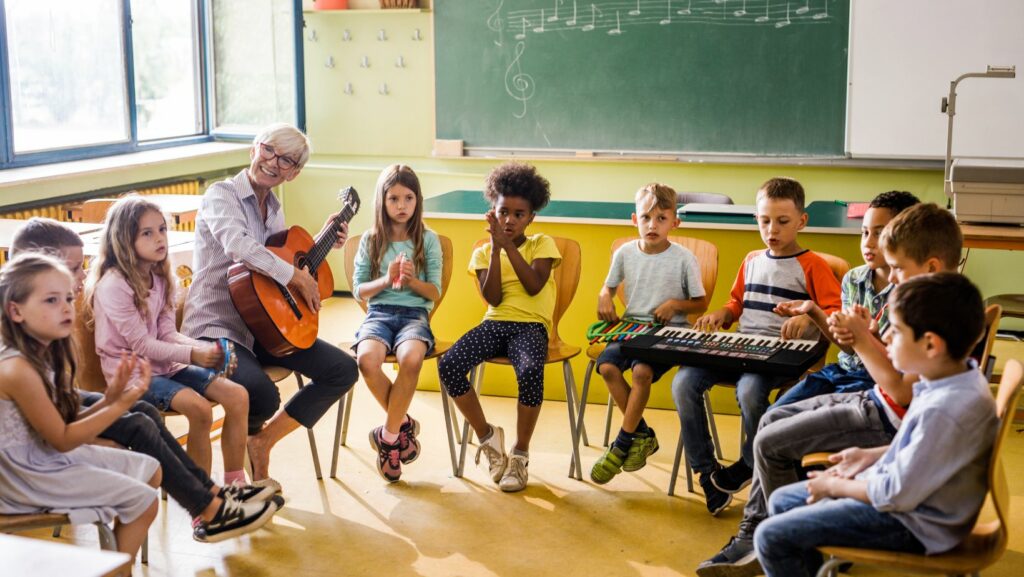Benefits of Music Education
When delving into the realm of education, one profound area that often gets overlooked is benefits of music education. The benefits of incorporating music into academic curricula extend far beyond the realms of just learning an instrument or hitting the right notes. Music plays a significant role in shaping young minds and aiding in their overall development.

From enhancing cognitive abilities to fostering creativity and improving memory retention, music education offers a myriad of advantages for students across all age groups. Research has shown that exposure to music can boost language processing skills and even aid in mathematical proficiency. Music has the power to stimulate multiple areas of the brain simultaneously, leading to improved focus, critical thinking, and problem-solving skills.
As someone who appreciates the transformative power of music, I have witnessed firsthand how benefits of music education can instill discipline, teamwork, and self-expression in students. Whether through group performances or solo practice sessions, music provides a platform for individuals to showcase their talents while also teaching them valuable life lessons. The significance of music education goes beyond just creating musicians; it molds well-rounded individuals equipped with essential skills for success in various aspects of life.
Enhancing Cognitive Skills Through Music Education
As we delve into the realm of music education, it’s fascinating to explore how it enhances cognitive skills. The interplay between music and cognitive development is profound, with numerous benefits that extend beyond just musical proficiency. Let’s uncover the transformative impact of music on various cognitive abilities.
Improved Memory Retention

Music education has been shown to significantly boost memory retention. When individuals engage with music by practicing instruments or learning songs, they exercise their working memory. This constant mental rehearsal not only sharpens musical skills but also enhances overall memory capacity. Research indicates that students who receive music instruction tend to perform better in memory-related tasks across different academic subjects.
Enhanced Problem-Solving Skills
Learning music involves deciphering complex patterns, understanding musical structures, and interpreting nuances in sound. These cognitive demands foster strong problem-solving skills among students. By grappling with musical challenges, individuals develop analytical thinking, attention to detail, and critical reasoning abilities. These problem-solving skills acquired through music education can be applied effectively in academic pursuits and real-world scenarios.
Heightened Concentration and Focus
Engaging with music requires sustained focus and concentration. Whether mastering a new piece or collaborating with other musicians, students must maintain unwavering attention throughout the musical process. This continuous mental engagement cultivates a heightened ability to concentrate for extended periods. As a result, individuals who undergo music education often exhibit improved focus not only in musical contexts but also in academic endeavors and daily tasks.
Stimulated Brain Development
Music has a profound impact on brain development, particularly during formative years. Playing an instrument or engaging in vocal training activates various regions of the brain responsible for auditory processing, motor coordination, emotional regulation, and language comprehension. The intricate neural connections forged through musical experiences contribute to enhanced cognitive functions such as multitasking ability, spatial reasoning, and emotional intelligence.
Social Benefits of Learning Music
Exploring the social benefits of learning music unveils a world where individuals not only develop musical skills but also foster connections with others. Here, I delve into how music education extends beyond melodies and rhythms to shape interpersonal relationships and societal engagement.
Fostering Collaboration

Music education cultivates a sense of teamwork and cooperation among learners. Through ensemble performances or group practices, students learn to synchronize their efforts, listen attentively to others, and appreciate the importance of each individual’s contribution. This collaborative aspect instills valuable skills that transcend the realm of music, preparing individuals for effective teamwork in various aspects of life.
Building Communities
Engagement in music programs often leads to the formation of tight-knit communities centered around a shared passion for music. Whether through school bands, choirs, or local orchestras, these groups provide a supportive environment where individuals can bond over their love for creating music. Such communities offer not only artistic enrichment but also emotional support and camaraderie.
